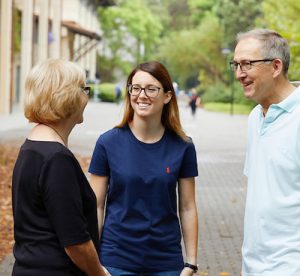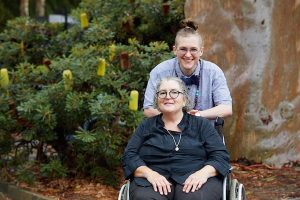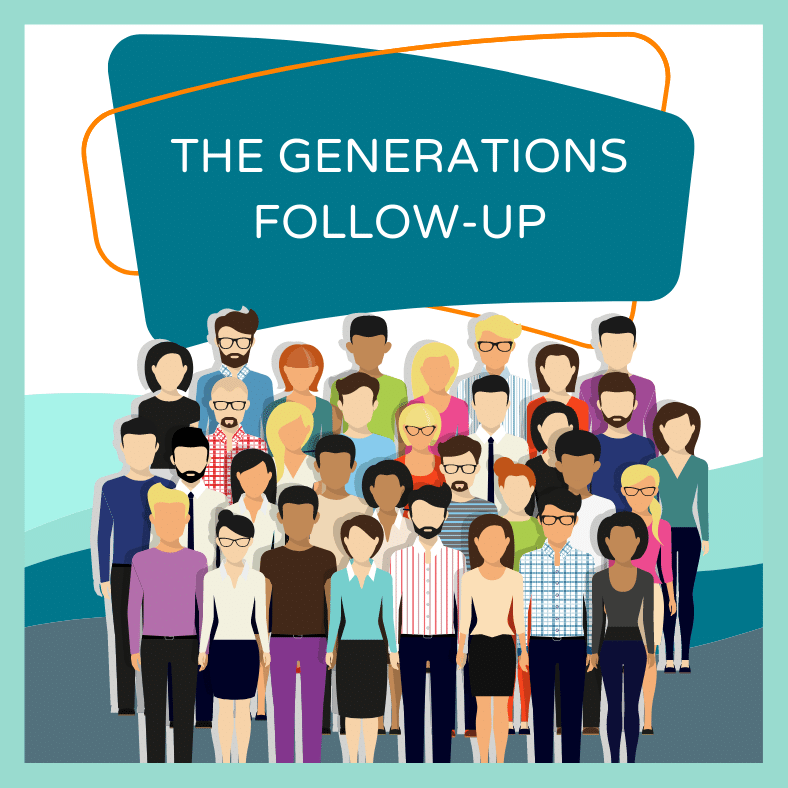Starting in April 2023 and running until at least the end of 2025, the Raine Study will conduct a new follow-up that we hope will be our biggest ever – the Generations Follow-Up.
READ OUR NEWS ANNOUNCEMENT HERE

It will involve two generations of participants – the original Raine Study babies (our Generation 2 participants who were born into the study from 1989-1992, or Gen2) as well as their biological parents (otherwise known as Generation 1/Gen1). We’re calling it the Generations follow-up because it will collect samples and information from two rather than just one of our participant generations at the same time, something that we have never been able to do before.
GET INVOLVED
We want this to be our biggest follow-up ever. It will potentially see us break records for participant engagement, provide researchers with data in more health-related areas than ever before, as well as help potential financial supporters see the incredible value that the Raine Study presents to scientists, doctors, researchers and public health bodies around the world. But, we can only achieve these milestones if as many of our participants take part as possible.
As you can imagine, over 30-something years we’ve lost contact with a number of our participants. Maybe they moved house before emails or phone became the number one tool to get in contact, perhaps they moved interstate or overseas and thought they couldn’t take part any more (not true), or maybe they had reached a time in their life where they didn’t feel like taking part any more (we understand, we really do…)
HOW CAN YOU HELP?
UPDATE YOUR CONTACT DETAILS
If you’ve attended a follow-up in the last few years or have received a phone call, email, birthday or Christmas card that’s great, as it means we have the correct contact information for you.
If you haven’t heard from us recently, make sure we’ve got the latest information for you by updating your details here, emailing your updates to us at rainestudy@uwa.edu.au , or calling the Raine Study office on +61 8 6488 6952 or +61 447 863 944.
GET BACK IN TOUCH
If you’re one of the people who has received a phone call, email or card but maybe wasn’t able to find time or motivation to take us up on our invitation to get back involved, or didn’t think it would matter that much if you didn’t take part – the good news is, it’s never too late. Make your updates online, email or call us, and we’ll make sure that all your information is up to date for when it’s time to make your booking.
HELP US FIND OTHER LOST PARTICIPANTS
Working on the idea that Perth is a small place (and WA, and Australia, and let’s face it – the world!), we’re hoping that our community can help us find some of the other participants we haven’t had any luck tracking down. While you might not think that you know any other Raine Study participants, it’s amazing what connections you find if only you ask. It might be people you work with, someone at your local GP or school, or someone who’s a member of the same football club.
To help get you started, we’ve created a range of materials that you could use in whatever way you feel comfortable with, whether that’s a post on your own social media page, an email to your community group, or a poster that you can print and share at your local library or shopping centre. Head on over to our Participant Tookit page for more.
FREQUENTLY ASKED QUESTIONS
Why is the Generations follow-up such a big deal?
The reason why we’re so excited for the Generations follow-up is because it is the very first time we’ve been able to conduct a follow-up that includes both our Gen1 and Gen2 participants at the same time. Not since our pregnant mothers were recruited to the study between 1989 and 1991, when we checked their health at the same time as conducting ultrasounds on their babies, have we been able to do this.
This is important because it helps keep us unique among cohort studies. It will also open many new opportunities in the future for researchers who want to use multiple generations of Raine Study data, who also need to know that the data was collected using the same methodology in the same follow-up period. This in turn will add significantly to the ongoing value of the Raine Study. To really maximise the impact of this ground-breaking follow-up, we’d love to see as many participants as possible take part in the follow-up.
How will this follow-up be run? Will there be enough timeslots on the booking calendar for me to make an appointment that works for me?
While the Generations Follow-up will start in 2023 it will take place over 3 years (or even longer if needed), so you’ll have plenty of time to come in and see us – so you might not even hear from us until 2024. Since this is such a massive follow-up, our plan is to call our participants to book appointments in Gen2 birth order; that is, the order that the original Raine Study kids were born with 1989 being first on the list, then 1990, 1991 and so on. We’ll have separate (but related!) teams managing the booking process for Gen1s (original parents) separate from Gen2s (original kids).
Just because we plan to call you in Gen2 birth order doesn’t mean we have to see you in birth order! If you know that you’ll only be available at a certain time of the year, that’s fine – contact us or let us know when we speak to you and will be happy to accommodate your preference. Likewise, if you’re not able to make the timeslot you’ve booked, get in contact and we can reschedule. This also means if you live internationally or interstate we’ll be able to make space for you if you find yourself in Perth over the next few years.
What will this new follow-up include?
We’ll be collecting the same core set of standard measures we’ve been taking ever since the Raine Study first began. These include measuring your resting blood pressure, height and weight, body composition, cognitive function, sleep, and activity. We’ll also collect blood and urine samples, and will ask you to complete questionnaires about you and your family, your lifestyle, diet, physical and mental health, and medical history.
Above and beyond these core measures, researchers are working to secure funding that will enable them to collect measures on other topics they’re interested in researching. In the past these have included sleep, vision and heart health. We’ll let you know as soon as we have more information to share.
 Making the Generations follow-up relevant to YOU
Making the Generations follow-up relevant to YOU
With this new follow-up, we wanted to include questions and measures on subjects that are of specific interest to our participants, not only the questions that researchers are focused on. It’s one small way we can express our gratitude to you for your 30+ years of involvement in the Raine Study.
Thank you to everyone who responded to the survey that was run November 2021-January 2022; and to all those participants who have contributed since then in so many ways -through their involvement in the Raine Study Cohort Advisory Committee, by participating in the participant panel at our 2022 Symposium event, or simply by sharing your thoughts in email or via comment on our social media posts. We love hearing from you and always appreciate you taking the time to share your thoughts with us.
 Why is it important for participants to input to research planning?
Why is it important for participants to input to research planning?
Evidence shows that where participants (“consumers”) are involved in the design of research projects through surveys or questionnaires, those research projects are better received by the participants. It ensures that the issues which are most important to people are identified and prioritised.
There’s also lots of evidence that involving consumers improves how research findings are shared across the community. People are more likely to tell others about something they’ve had a say in, which in turn helps increase the chances that research findings might ultimately impact health policy.
Involving consumers in research is something that the Raine Study and its partners have cared about for a long time. Telethon Kids Institute has lots of great information on the topic. The Consumer and Community Involvement Program at the Western Australian Health Translation Network is another good source about the topic.

